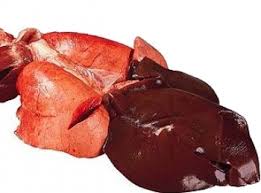 The stopping of offal sales from the USA to the People's Republic of China as a result of the trade war between these countries will allow Russian agriculture companies to increase offal export to China tenfold - up to 300 thousand tons for $ 520m per year.
The stopping of offal sales from the USA to the People's Republic of China as a result of the trade war between these countries will allow Russian agriculture companies to increase offal export to China tenfold - up to 300 thousand tons for $ 520m per year.
Before the beginning of the war, American farmers sold 90% of meat by-products and poultry, pork and beef to China. In April, China imposed duties on the offal import from the United States at a rate of 25%, and from June 6 raised it to 50%. As a result, American agricultural companies stopped meat by-products supplying to China - the losses of American farmers in 2018 are estimated at almost $1b only for pork legs, tails, stomachs, liver and ears. If we take into account the by-products from other animals, then the losses will exceed $ 5b, as the by-products in the US are practically not in demand. As a result, "American companies have to sell offal (hooves, stomachs, etc.) instead of 56 cents / kg at 18 cents / kg in their domestic market to processing companies and manufacturers of mixed fodder," says Ilya Bereznyuk, managing partner of Agro & Food Communication agency.
Russian agro companies can benefit from the US-China trade war. In recent years, the export of by-products from Russia to China has been steadily growing: in 2017 it increased more than 1.6 times, to $ 52.2m in money terms and 1.4 times in weight to 33.4 thousand tons . And for 2015-2017, the export of offal was up 3.7 times in money and 3 times in tons. In 2013-2018, Russia sold to China by-products for $ 146m, 104 thousand tons - it is 80% of all exports of offal from Russia. By 2024, domestic agricultural manufacturers intend to increase these volumes to 300 thousand tons per year.
Active communications with China on the supply of Russian pork have been going on for a long time. "Even at the highest level in four years, these discussions have not been able to take a productive course, but now our Chinese colleagues have actually frozen them, and one of the reasons is the severe situation with the ASF virus, which over the past week was found at three sites in large pork complexes," says Sergei Yushin, head of the executive committee of the National Meat Association. Russia needs to tighten sanitary control measures to improve biological safety. "But we do not even have a national animal identification system, there are no programs to combat dangerous diseases and monitor them," Sergei Yushin noted.
Nevertheless, Russia has good prospects for increasing the offal products export to China, said Marina Petrova, general director of Petrova Five Consulting. After all, in addition to pork by-products, there are other kinds of offal, and the demand for them in China is growing. Experts believe that Russia could intercept about a tenth of the volume of by-products export that American farmers lost. As a result, within five years Russia can increase the export of these products to China up to $ 500-520m per year.
Source: soyanews.info.

